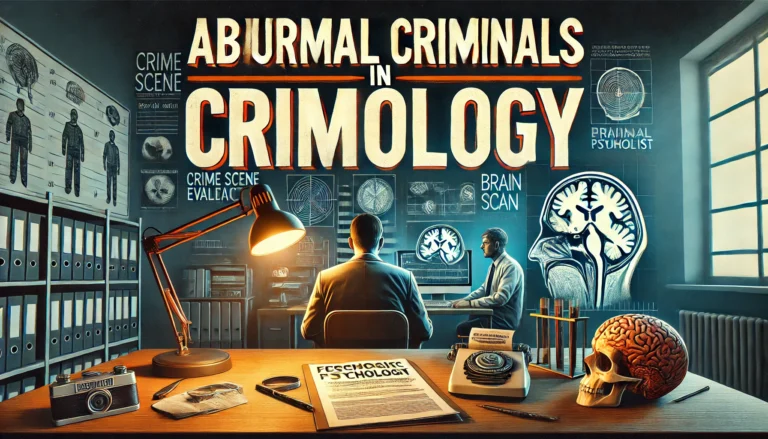Abnormal Criminals in Criminology: Comprehensive study
Introduction to Abnormal Criminals in Criminology Criminology, as an academic discipline, seeks to understand the causes and consequences of criminal behavior. Within this field, the study of abnormal criminals plays a crucial role in identifying individuals whose crimes stem from psychological, biological, or sociological abnormalities. The concept of abnormal criminals in criminology is essential for…



